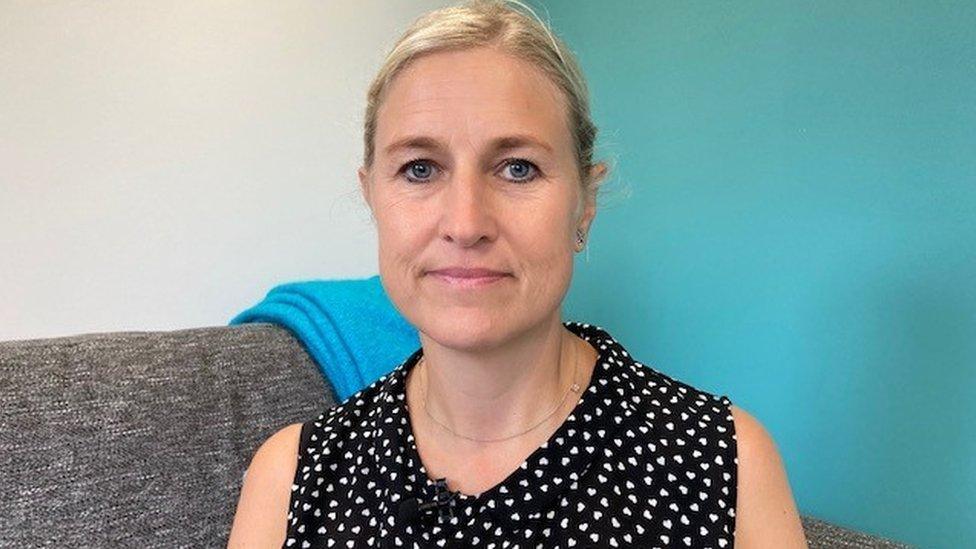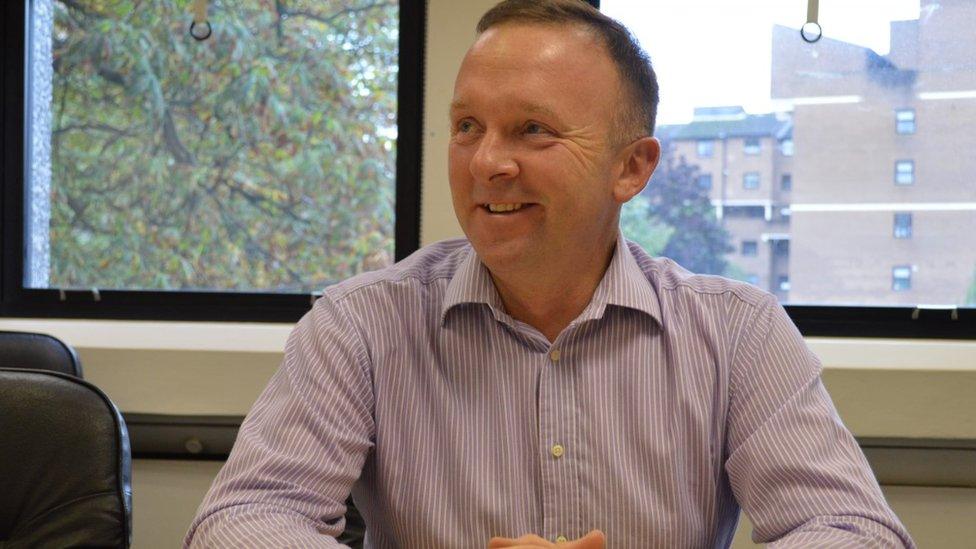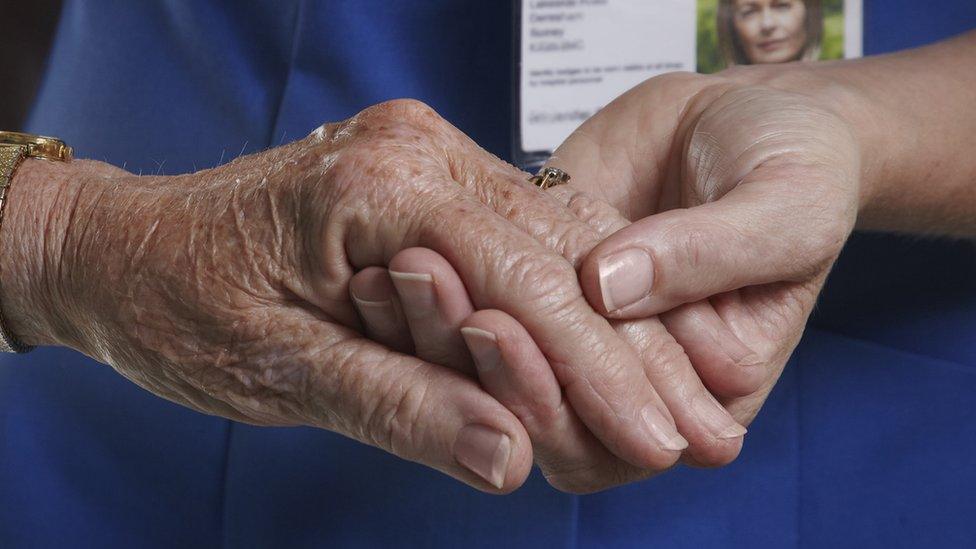Social care: 'Emergency' over lack of workers, bosses say
- Published

Neve Campbell (l) and Megan Haskell are leaving the care profession to train as paramedics
There is a "national emergency" in health and social care due to the lack of care workers, NHS leaders have said.
Up to 1,500 people are medically fit but cannot leave hospital because of a lack of social care, the Welsh NHS Confederation said.
It has led to calls to pay carers at least £15 an hour.
The Welsh government said it is investing to support the recruitment and retention of social care staff and has launched a recruitment campaign.
Megan Haskell and Neve Campbell, both 19, are carers for All Care Ltd in Barry, Vale of Glamorgan - but they are both leaving the profession to become paramedics.
Neve said the job is rewarding but people don't appreciate it as much as they should.
"We put in a lot of hours. You could be on your day off and get five phone calls to cover some shifts," she said.
"It gets hard because you know people need you and you can't always be there. It's stress for us and the company. The pay isn't as good as it should be considering what we do and see."
Megan, who has been a carer for two years, added: "You see people at the lowest but you can help make their day better."
Their manager, Wendy Harvey, said many carers were leaving the sector for jobs in hospitality and retail as the pay was better.
All Care Ltd has lost 40% of its workforce since the pandemic.
She said there were terminally ill people that they were unable to help because of the lack of staff.
"That's not what care is about," she added.

Keri Llewellyn says care workers need a minimum of £15 an hour
"I feel like I'm letting my staff down as well, we're constantly ringing them, they're working their days off, they're working their weekends off, we've even got staff coming in off their holidays to help because we can't manage the care."
All Care's director, Keri Llewellyn said care workers needed a minimum of £15 an hour and there needed to be more integration between health and social care.
She said better communication was needed, especially when the NHS set up new projects intended to help people out of hospital, as people were leaving care roles to work for the NHS.
"All that does is take staff away from us so it leaves another part of the service even more vulnerable," she added.
Director of the Welsh NHS Confederation, Darren Hughes, said a recent poll of NHS leaders showed the workforce crisis in social care was affecting the whole NHS - from ambulance handovers to dealing with the elective care backlog.
He said it had been described not as a crisis but a national emergency and there were between 1,000 and 1,500 people who were ready to be discharged from hospital but could not go home because the right social care was not in place.

"NHS pressures in summer have already been at winter levels," says Darren Hughes
"That's the equivalent of taking Wales' biggest hospital out of the system because of delayed transfers of care into social care," he said.
"NHS pressures in summer have already been at winter levels.
"We're going into winter expecting an upturn in respiratory viruses, there's the backlog - the largest number of people ever waiting for treatment, so we're working flat out to recover that but the biggest barrier is our ability to discharge people after they've been treated, and we need Welsh government to address this as a matter of urgency."
Mr Hughes agreed carers needed to be paid more and in line with similar roles in the NHS.
"Until care workers are paid a fair wage, we'll be in this crisis forever. This is urgent."
The Welsh NHS Confederation has also called on the Welsh government to provide ring-fenced council funding for social care.
Alwyn Jones, from the Association of Directors of Social Services, said the problem did not lie solely with social care.

Alwyn Jones says the problem does not lie solely with social care
"Clearly, care is one very important aspect and ensuring that we offer the right terms and conditions [for carers] but moreover we need to look at the system as a whole.
"We need to ensure we have the right support services available to support avoidance of admission, to maintain resilient communities, and hopefully, when someone does go to hospital that we can draw them home and support them in the quickest possible time."
The Welsh government said: "We are investing to support the recruitment and retention of social care staff in Wales and have launched a campaign to improve to recruitment. We introduced the real living wage for social care workers earlier this year and continue to work with the sector to improve terms and conditions.
"Local authorities are working with health boards to increase the number of domiciliary care workers and we will soon be releasing details about our ongoing work to increase community bed capacity for the winter."
Related topics
- Published7 September 2021

- Published20 November 2022
